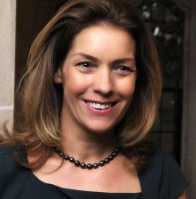Please note that this blog was posted over 2 years ago and may no longer be accurate
Dr Steve Connor OBE, founder of The National Centre for Domestic Violence, becomes NCDV Chair as the organisation restructures to face today’s challenges.
With growing numbers of referrals from the police and other agencies nationally and the ongoing obstacles and threats to access to justice for those needing to protect themselves and their families, NCDV is restructuring to ensure that they can provide the best possible service to all of those seeking help regardless of their ability to pay.
Mark Groves will take over as CEO bringing 8 years of coalface experience in helping and supporting victims. As Head of Operations Mark has managed the organisation on a day to day basis. His vision is to ensure a joined up service across the whole country so that there is a streamlined referral and support service for anyone suffering domestic abuse irrespective of means or postcode. Dr Connor confirmed “ With the diversity of service we now provide it makes sense to put in place a new top management structure. My position will change to one of Non-Executive Chairman guiding NCDV within the core principals we have always had in place.”
Mark said “ Steve has passed to me a huge responsibility which I take extremely seriously, victims need a slick system to enable them to obtain legal protection as quickly as possible but this needs to be a system that provides them with support and empathy which is a very difficult balancing act. We are lucky to have a fantastic team to help build our great ideas into physical applications that make a real difference.”
Award winning family lawyer Jenny Beck is joining NCDV in an advisory position as Principal Legal and Ethical Adviser. Mark Groves said “ It is essential that as NCDV gets bigger we understand the legal landscape within which we operate and can be supported to ensure our decisions are made mindful of emerging policy. I have known Jenny for many years, she is well respected and is completely committed to helping victims of domestic violence and abuse.”
 Jenny Beck is chair of the board of the New Advisory Law Council, the Access to Justice Committee and co chair of the Legal Aid Practitioners Group. Her firm, Beck Fitzgerald, was set up to provide accessible Family Law. She is wholly committed to this area of law and working with all stakeholders to ensure that the best protection possible can be accessed. She will be joining NCDV on a pro bono basis.
Jenny Beck is chair of the board of the New Advisory Law Council, the Access to Justice Committee and co chair of the Legal Aid Practitioners Group. Her firm, Beck Fitzgerald, was set up to provide accessible Family Law. She is wholly committed to this area of law and working with all stakeholders to ensure that the best protection possible can be accessed. She will be joining NCDV on a pro bono basis.
Ms Beck said “I have been working with Mark for a number of years, the work that NCDV does is completely unique and I am very excited to be on board. There are some significant challenges for services to abuse victims at present and it is essential that all stakeholders work together to promote, support and improve access to legal protection”

